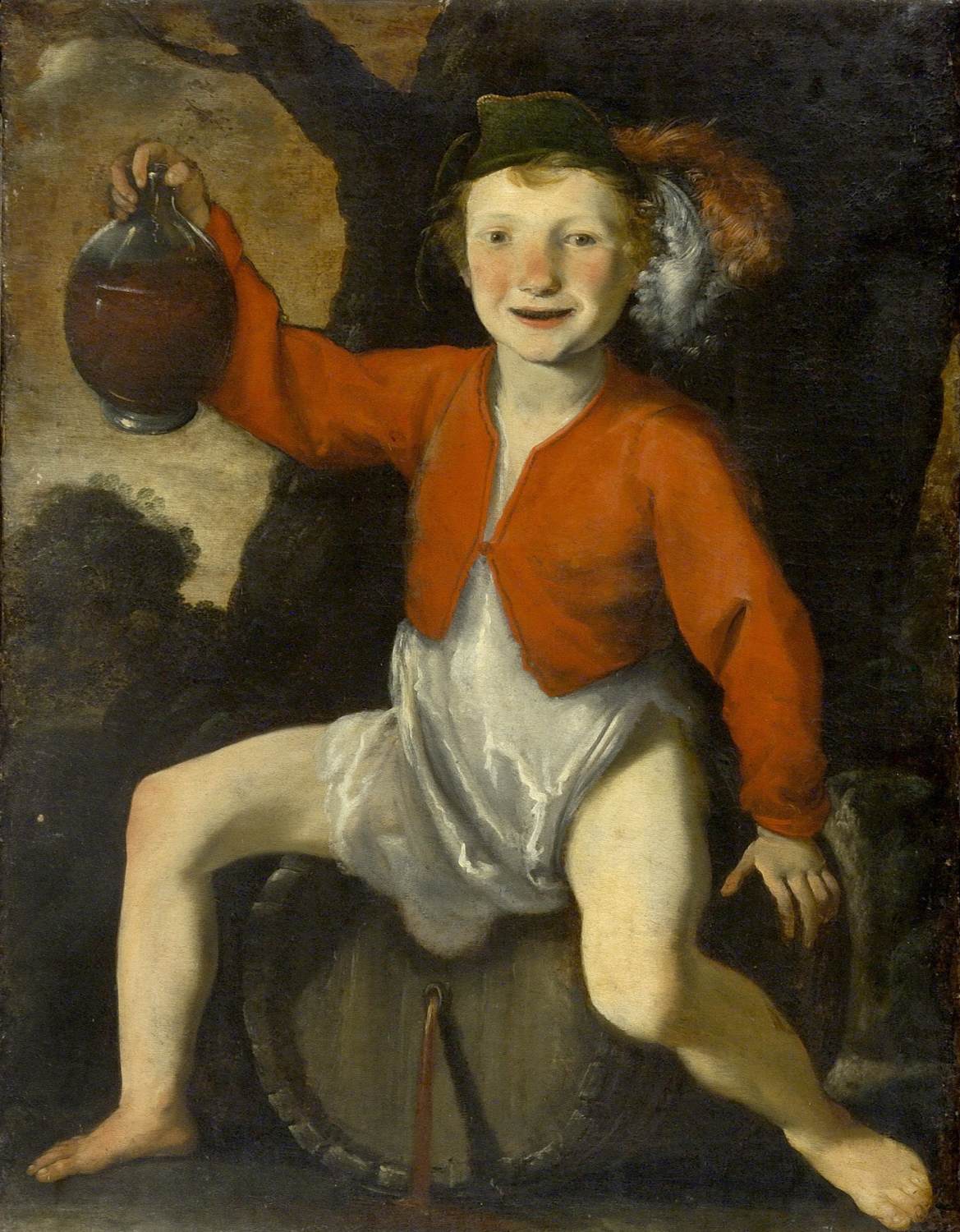Description
The painting "Young Bacchus" by Italian artist Giovanni Da San Giovanni is a 17th-century masterpiece noted for its Baroque style and dramatic composition. The central figure of the painting is the Roman god of wine, represented as a naked youth with a crown of leaves on his head and a glass in his right hand.
The composition of the work is very interesting, since the artist manages to create a sensation of movement and dynamism through the posture of the character and the arrangement of the elements in the painting. Bacchus stands in a slightly bowed position, as if about to take a step forward, while behind him can be seen a number of items that suggest the wild and exuberant nature of his cult, such as leaves, fruits, and animals.
Regarding color, the work presents a rich and vibrant palette, with warm and bright tones that reinforce the idea of exuberance and vitality. Especially noteworthy are the golden and reddish tones of Bacchus's skin, which contrast with the dark and gloomy background of the painting.
The history of the painting is also very interesting, as it is known that it was commissioned by Cardinal Leopoldo de' Medici in the 1630s and was part of his private collection for many years. In addition, it is believed that the work was inspired by an ancient sculpture of Bacchus that was in the Medici collection in Florence.
As for little-known aspects, it is known that Giovanni Da San Giovanni was a very prolific and talented artist who worked in Florence during the second half of the 17th century. However, his work has been largely overshadowed by that of other artists of the time, such as Caravaggio or Bernini. "Young Bacchus" is undoubtedly one of his most outstanding works and a sample of the talent and creativity of this forgotten artist.

